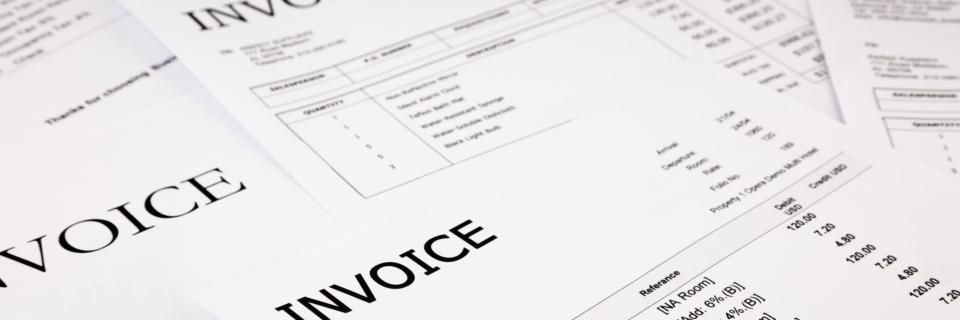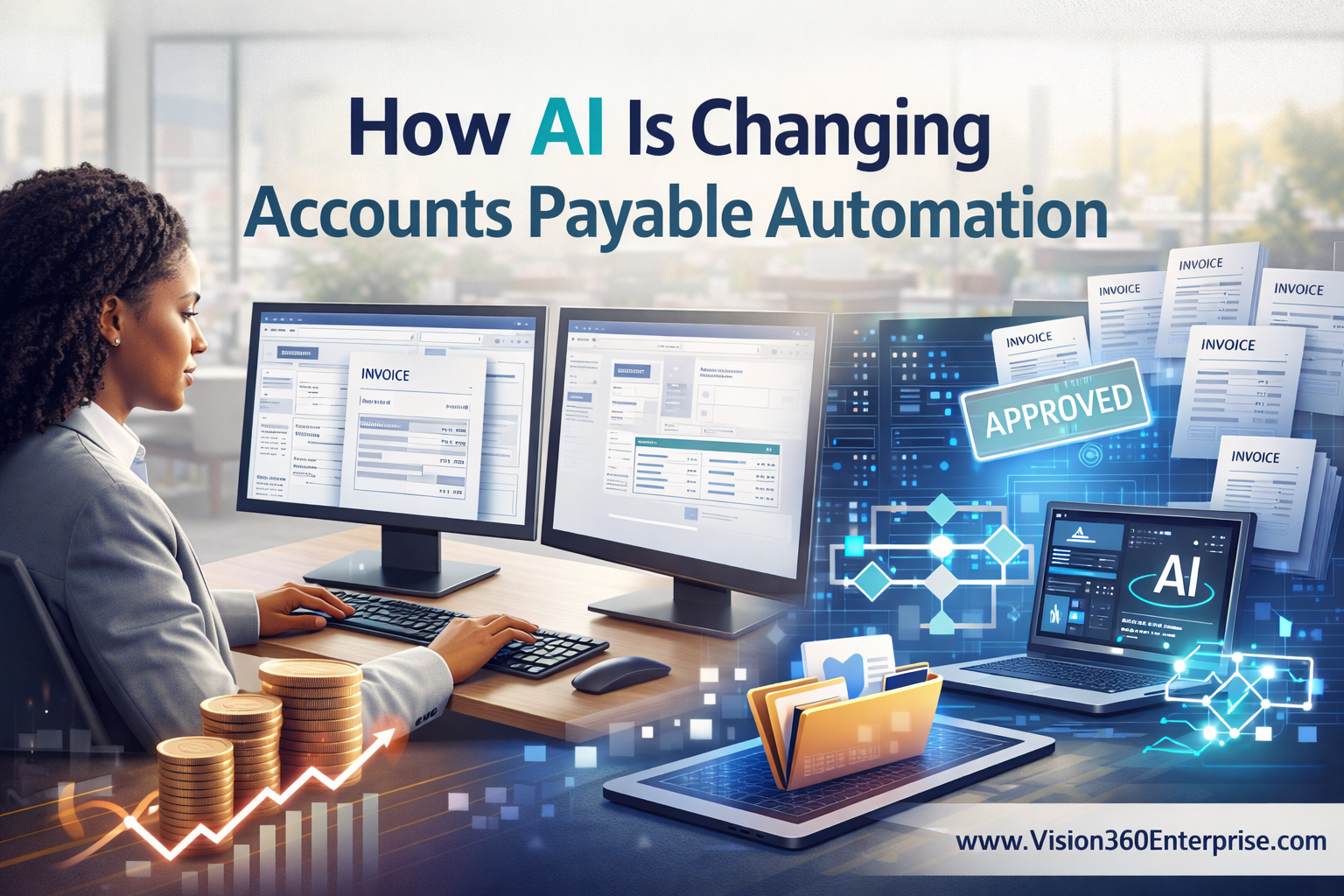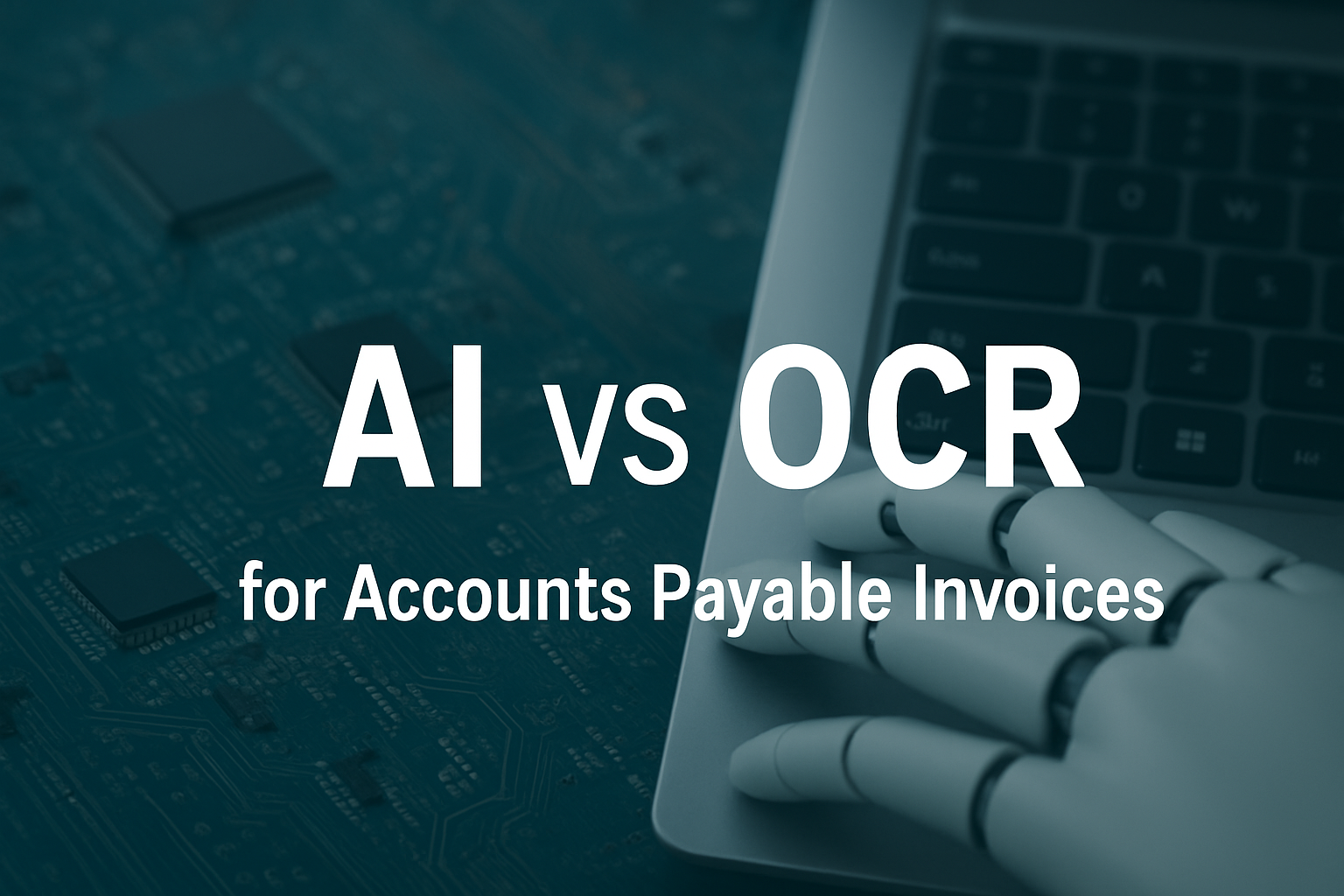Traditional Accounts Payable Invoice Processing Relies Heavily on Manual Processes.

In today’s fast-paced business world, efficiency is key. One area where many companies can streamline operations and improve cash flow is in their accounts payable (AP) processes. Traditionally, accounts payable has been a manual, paper-intensive task involving invoice processing, data entry, approval workflows, and payment management. However, accounts payable automation is transforming how businesses manage this essential function.
Here are six compelling reasons why automating your accounts payable process can benefit your business:
1. Increased Efficiency and Time Savings
One of the most immediate
benefits of accounts payable automation is the significant reduction in the time spent on manual tasks. By eliminating repetitive steps like data entry, invoice sorting, and approval chasing, automation allows your finance team to focus on more strategic tasks. Instead of processing invoices one by one, AP automation software can quickly extract data, match it with purchase orders and receipts, and flag discrepancies for review.
The result? A faster AP cycle, quicker payments, and more time for your team to focus on higher-value work.
2. Improved Cash Flow Management
Automating accounts payable helps businesses maintain better visibility and control over their cash flow. AP automation solutions often come with built-in reporting tools that allow you to track and manage your outstanding bills, due dates, and payment terms. With this real-time information at your fingertips, you can make more informed decisions about when to pay invoices and optimize your cash flow.
Additionally, automation can facilitate early payment discounts, helping you save money by paying suppliers on time and taking advantage of any offered discounts, improving your bottom line.
3. Enhanced Accuracy and Reduced Errors
Manual data entry is prone to human error—whether it’s typing mistakes, missed invoices, or duplicate payments. These errors can be costly in terms of both time and money. Accounts payable automation eliminates these risks by
automatically extracting data from invoices, matching it against purchase orders, and validating amounts and payment terms.
With fewer errors, you can avoid overpaying suppliers, missing discounts, or paying the wrong amounts, leading to more accurate financial reporting and a smoother relationship with vendors.
4. Better Compliance and Audit Trails
Manual AP processes can make it difficult to track and document each step of the payment process, increasing the risk of non-compliance or fraud. Accounts payable automation solutions, however, provide an electronic audit trail of every invoice, approval, and payment action, ensuring that you have a comprehensive record of all AP activities.
This level of transparency is invaluable during audits or when reviewing past transactions. With everything documented and easily accessible, you can meet compliance requirements with less effort and reduce the likelihood of fraud or financial mismanagement.
5. Streamlined Vendor Relationships
Maintaining strong relationships with vendors is crucial for any business. By automating accounts payable, you can ensure timely and accurate payments, which helps foster trust and goodwill with suppliers.
AP automation also makes it easier to communicate with vendors, track payment status, and resolve disputes quickly.
Additionally, automation provides better visibility into vendor performance and payment trends, allowing your business to negotiate better terms or take advantage of early payment discounts with suppliers you pay consistently and on time.
6. Scalability and Flexibility
As your business grows, the volume of invoices and payments will increase, making it difficult to maintain the same level of efficiency with manual processes.
Accounts payable automation scales with your business, allowing you to handle larger volumes without needing to hire additional staff or implement cumbersome manual workflows.
Most modern AP automation tools are flexible and can integrate with other systems like Enterprise Resource Planning (ERP) and accounting software. This flexibility ensures that your AP process can grow seamlessly with your business needs and adapt to changes as your operations expand.
Conclusion: Unlock the Full Potential of Accounts Payable Automation
Automating your accounts payable process offers significant advantages, from improved efficiency and cash flow management to better accuracy, compliance, and vendor relationships. As businesses continue to embrace digital transformation, adopting AP automation not only saves time and money but also enables growth and scalability.
In today’s competitive landscape, leveraging technology to streamline AP processes is no longer optional—it’s a smart business move. If you haven’t already, now is the time to explore accounts payable automation and unlock its full potential for your business.
By implementing an automation solution, you’ll gain greater control over your finances, reduce operational costs, and free up valuable resources to focus on what truly drives your company’s success.
Are You Ready to Explore Accounts Payable Automation?!
Talk with an AP Automation Expert!









